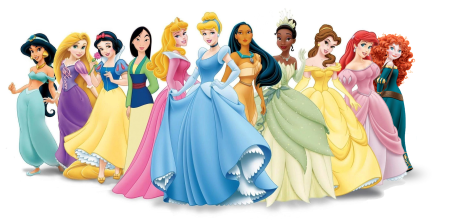“Anti-Cinderella.” — I was engaged in a conversation with an American UN Peace Corps Volunteer for Education in my high school alma mater when I first heard of this term. She, an enthusiastic woman whose advocacy is creative writing, was relating to me how surprised she was to find that storytelling activities at the high school level still involved telling the story of Cinderella.
“We’re kind of anti-Cinderella,” she explained. “We don’t want to promote the idea that you need a prince to save you from misery and make it in life.”

Image by Sam Howzit via Flickr CC BY 2.0
When I first heard the term at that time —anti-Cinderella— I must admit, I felt a wee bit part of me die somehow. You can imagine the princess-wannabe part of me—that part ingrained and nurtured by so many princess fairy tales I read and Disney-princess movies I watched as a child—reacting to the term with a downhearted, “But I love Cinderella…” said complete with a cutesy voice and puppy-dog eyes.
How could some people now be attaching the prefix “anti” to such a classic hallmark of any girl’s childhood role models?
![Image by Loren Kerns [http://www.flickr.com/photos/lorenkerns/] via Flickr [http://www.flickr.com/photos/lorenkerns/4007702446/] CC BY 2.0 [http://creativecommons.org/licenses/by/2.0/]](https://inkblotsandicebergs.files.wordpress.com/2013/11/cinderella-children.jpg?w=461&h=368)
Image by Loren Kerns via Flickr CC BY 2.0
But then, of course, the more I thought of it, the more it made sense. As a character, Cinderella was docile and gentle, content to slaving away for the sake of a family she clearly didn’t think she should go up against even when she was mistreated.
![Image by Loren Javier [http://www.flickr.com/photos/lorenjavier/] via Flickr [http://www.flickr.com/photos/lorenjavier/5563663386/in/photostream/] CC BY-ND 2.0 [http://creativecommons.org/licenses/by-nd/2.0/]](https://inkblotsandicebergs.files.wordpress.com/2013/11/cinderella-bed.jpg?w=430&h=322)
Image by Loren Javier via Flickr CC BY-ND 2.0
![Image by nouspique [http://www.flickr.com/photos/nouspique/] via Flickr [http://www.flickr.com/photos/nouspique/5492140624/] CC BY-NC-SA 2.0 [http://creativecommons.org/licenses/by-nc-sa/2.0/]](https://inkblotsandicebergs.files.wordpress.com/2013/11/cinderella-godmother.jpg?w=461&h=345)
Image by nouspique via Flickr CC BY-NC-SA 2.0
Thus Cinderella was the typical damsel-in-distress, I-need-a-hero, I’m-even-prettier-when-I-weep kind of character found in many fairy tales told to young girls who then grow up idealizing this image. The underlying theme is that meekness and kind-heartedness will, in due time, be inevitably rewarded with a happy-ever-after—just you wait and be patient; your time will come.
![Image by Sofi [http://www.flickr.com/photos/sofi01/] via Flickr [http://www.flickr.com/photos/sofi01/4369517421/] CC BY-NC 2.0 [http://creativecommons.org/licenses/by-nc/2.0/]](https://inkblotsandicebergs.files.wordpress.com/2013/11/cinders.jpg?w=415&h=545)
Image by Sofi via Flickr CC BY-NC 2.0
Now, this is a hopeful view—in no way are meekness and kind-heartedness evil traits to possess, and certainly every girl desires a happy-ever-after (spent with a handsome prince to boot) in this life.
![Image by Bucky Schwarz [http://www.flickr.com/photos/importantyesterday/] via Flickr [http://www.flickr.com/photos/importantyesterday/3086096146/] CC BY-NC-SA 2.0 [http://creativecommons.org/licenses/by-nc-sa/2.0/]](https://inkblotsandicebergs.files.wordpress.com/2013/11/cinderella-castle.jpg?w=461&h=307)
Image by Bucky Schwarz via Flickr CC BY-NC-SA 2.0
The only problem is, life is not a fairy tale. And discovering this is bound to be a heartbreak for young girls who’ve grown up to think that they are or will be princesses, and are entitled to be treated by the world as so.
![Image by Christina Robinson [http://www.flickr.com/photos/robinson-rhora/] via Flickr [http://www.flickr.com/photos/robinson-rhora/396927409/in/photostream/] CC BY-NC-SA 2.0 [http://creativecommons.org/licenses/by-nc-sa/2.0/]](https://inkblotsandicebergs.files.wordpress.com/2013/11/cinderella-child.jpg?w=369&h=555)
Image by Christina Robinson via Flickr CC BY-NC-SA 2.0
![Image by janwillemsen [http://www.flickr.com/photos/8725928@N02/] via Flickr [http://www.flickr.com/photos/8725928@N02/8091118114/] CC BY-NC-SA 2.0 [http://creativecommons.org/licenses/by-nc-sa/2.0/]](https://inkblotsandicebergs.files.wordpress.com/2013/11/cinderella-prince.jpg?w=369&h=363)
Image by janwillemsen via Flickr CC BY-NC-SA 2.0
When none of the above “saviors” come, the unprepared girl may weep, become despondent, give up, or simply lay helpless, enduring whatever fire the dragon breathes on them. Tsk, tsk, tsk, not such a good ending to what could’ve been a great story.
♠
When we think about adversity and the bravery it requires to come out on top of whatever challenge is up, we think about heroes in the traditional sense—valiant knights in shining armor, demi-gods of Greek mythology, caped muscular men flying over cities, saving damsels in distress.
“Who’s the bravest person you know?” A young girl’s answer to this question is likely to point to any of these characters—these characters she dreams of one day saving her too, instead of characters she dreams of becoming.
![Image by Mark Giles [http://www.flickr.com/photos/admitone/] via Flickr [http://www.flickr.com/photos/admitone/44181208/] CC BY-NC-ND 2.0 [http://creativecommons.org/licenses/by-nc-nd/2.0/]](https://inkblotsandicebergs.files.wordpress.com/2013/11/cinderella-child2.jpg?w=369&h=491)
Image by Mark Giles via Flickr CC BY-NC-ND 2.0
But it’s time for a shift in this view, and the world recognizes it. Mercy Academy, an all-girls Catholic school in Kentucky, has recently gained attention for its unique ad campaign with the tagline “Prepare for real life,” and slogans such as “You’re not a princess,” “Life’s not a fairytale,” and “Don’t wait for a prince; be able to rescue yourself.” People are calling it “the next mommy wars” —pro-Disney Princess vs. anti-Disney Princess.
I, personally, would like to cast my vote for the anti-Disney Princess side. Only, there’s this one thing: Of the eleven official Disney Princesses, there’s one who neither was born into the title (i.e., not the daughter of a King or a Chieftain) nor has married a prince to gain the title Princess — Fa Mulan.
![Image by e r j k p r u n c z y k [http://www.flickr.com/photos/24842486@N07/] via Flickr [http://www.flickr.com/photos/24842486@N07/8344600482/] CC BY-NC-SA 2.0 [http://creativecommons.org/licenses/by-nc-sa/2.0/]](https://inkblotsandicebergs.files.wordpress.com/2013/11/mulan-blossoms.jpg?w=415&h=311)
Image by e r j k p r u n c z y k via Flickr CC BY-NC-SA 2.0
Mulan is (to date) the only Disney Princess to not hold the title of Princess in one form or another; not noble born, she bears no titles of her own, although she earns the non-noble title of Imperial Consul. Her eventual marriage to General Li Shang (also non-noble) does not grant her any titles either. — wikia.com
Mulan is one of the bravest fictional characters I know, and my favorite Disney “Princess.” But it was only when I saw this particular internet meme that I recognized how truly different she is from the other Disney princesses:
![Image courtesy of weknowmemes.com [http://weknowmemes.com/wp-content/uploads/2012/11/why-mulan-was-clearly-the-best-disney-princess.jpg]](https://inkblotsandicebergs.files.wordpress.com/2013/11/why-mulan-was-clearly-the-best-disney-princess.jpg?w=461)
Image courtesy of weknowmemes.com

Image by Little Tulip via Flickr CC BY-NC 2.0
“If there are no heros to save you, then you be the hero.” — Denpa Kyoshi
Thus I am officially joining the anti-Disney-Princess-except-Mulan bandwagon. It’s time we raise a generation of young girls who do not just dream of becoming princesses, but aim at becoming warrior-princesses, ready to take up the sword and fight if necessary…

Image by Loren Javier via Flickr CC BY-ND 2.0
…the kind guided but not passively bound by tradition and conformity, not afraid to break a few rules along the way for the sake of heroic sacrifice and nobility…

Image by Loren Javier via Flickr CC BY-NC-ND 2.0
…and able to think for themselves
and act to be the hero of their own story…
![Image by Trixie Pama [http://www.flickr.com/photos/trixpama/] via Flickr [http://www.flickr.com/photos/trixpama/6168578456/in/photostream/] CC BY-NC-SA 2.0 [http://creativecommons.org/licenses/by-nc-sa/2.0/]](https://inkblotsandicebergs.files.wordpress.com/2013/11/adversity.png?w=369&h=491)
Image by Trixie Pama via Flickr CC BY-NC-SA 2.0
“Who’s the bravest person you know?”,
they need not look far.
They can simply look in the mirror, find a courageous fire reflected in their eyes, and their answer shall unhesitatingly be,
![Image by Mark Giles [http://www.flickr.com/photos/admitone/] via Flickr [http://www.flickr.com/photos/admitone/49410307/] CC BY-NC-ND 2.0 [http://creativecommons.org/licenses/by-nc-nd/2.0/]](https://inkblotsandicebergs.files.wordpress.com/2013/11/mulan-child.jpg?w=415&h=553)
Image by Mark Giles via Flickr CC BY-NC-ND 2.0
♦ “I am.” ♦
¨.
• About the Author •
…
…
» • • • «
» • • • «


Reblogged this on the diary of a woman living the dream and commented:
You go Mulan.
LikeLike
A great topic. I’m questioning what to get my two five year old nieces for Christmas. I don’t want to contribute to the inundation they get everyone where around them to find strength outside themselves, but I also don’t want to irritate my sisters/their mothers by refusing to give them something “non-traditional”!
LikeLike
Your catholic school has an even bigger fairy tale than Cinderella and the Virgen Mary might be included.
I have often wondered the evolutionary roles of males and females on humankind. Add to the story of Cinderella that she used her female tears to gain control of the kingdom and subjugate all the evil bullies (witches, step sisters and step mothers). One reads into the story what one wants. Next we go after Wiley Coyote to find the road runner is a woman?
LikeLike
Reblogged this on Magic of this moment and commented:
Are you Cinderella or Mulan? 🙂
LikeLike